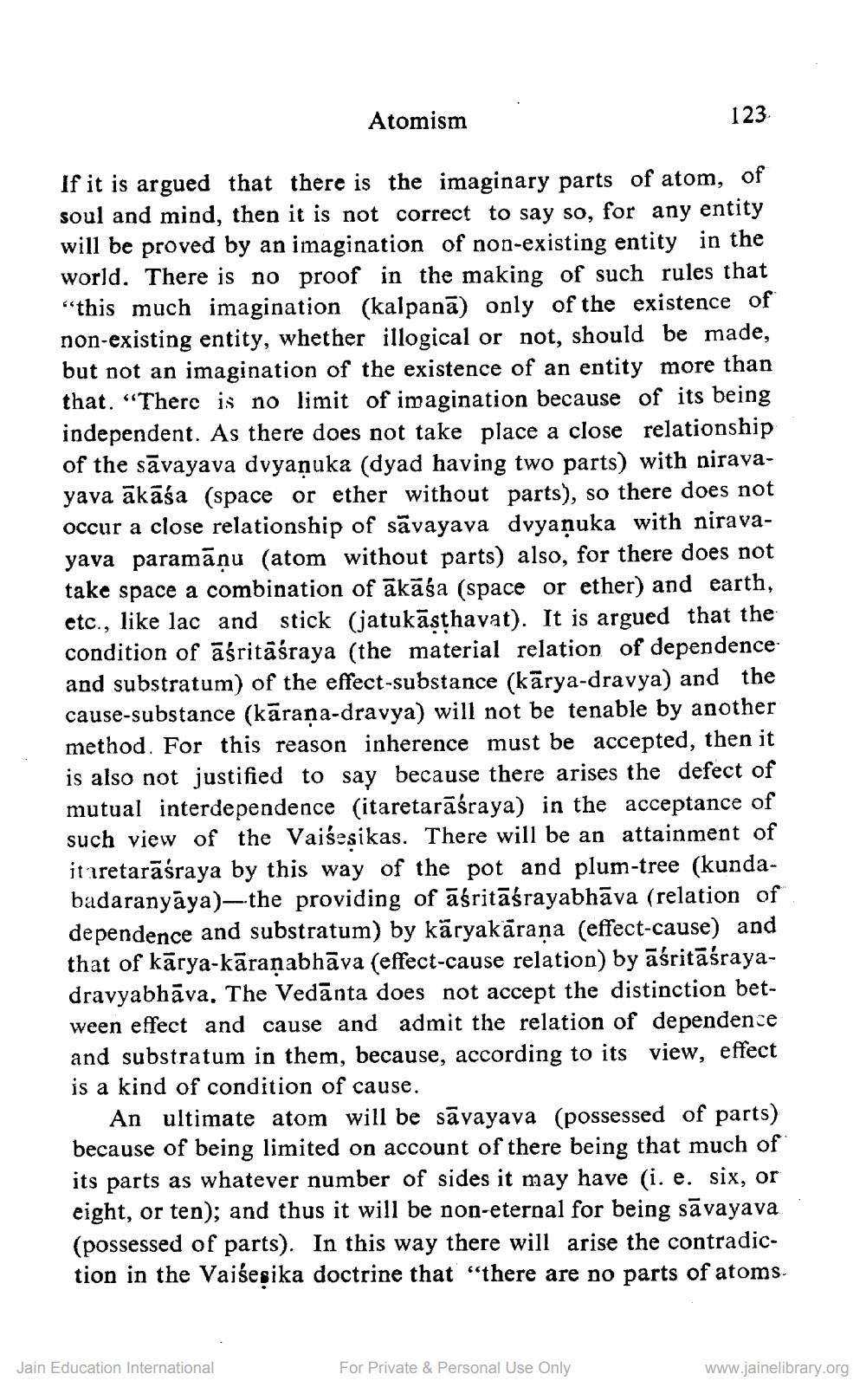________________
Atomism
If it is argued that there is the imaginary parts of atom, of soul and mind, then it is not correct to say so, for any entity will be proved by an imagination of non-existing entity in the world. There is no proof in the making of such rules that "this much imagination (kalpana) only of the existence of non-existing entity, whether illogical or not, should be made, but not an imagination of the existence of an entity more than that. "There is no limit of imagination because of its being independent. As there does not take place a close relationship of the savayava dvyaṇuka (dyad having two parts) with niravayava ākāśa (space or ether without parts), so there does not occur a close relationship of savayava dvyaṇuka with niravayava paramāņu (atom without parts) also, for there does not take space a combination of ākāśa (space or ether) and earth, etc., like lac and stick (jatukāṣṭhavat). It is argued that the condition of aśritāśraya (the material relation of dependence and substratum) of the effect-substance (karya-dravya) and the cause-substance (kāraṇa-dravya) will not be tenable by another method. For this reason inherence must be accepted, then it is also not justified to say because there arises the defect of mutual interdependence (itaretaraśraya) in the acceptance of such view of the Vaisesikas. There will be an attainment of itaretaraśraya by this way of the pot and plum-tree (kundabadaranyaya)-the providing of aśritāśrayabhava (relation of dependence and substratum) by karyakaraṇa (effect-cause) and that of karya-karaṇabhāva (effect-cause relation) by aśritāśrayadravyabhāva. The Vedanta does not accept the distinction between effect and cause and admit the relation of dependence and substratum in them, because, according to its view, effect is a kind of condition of cause.
Jain Education International
123
An ultimate atom will be savayava (possessed of parts) because of being limited on account of there being that much of its parts as whatever number of sides it may have (i. e. six, or eight, or ten); and thus it will be non-eternal for being savayava (possessed of parts). In this way there will arise the contradiction in the Vaiseṣika doctrine that "there are no parts of atoms.
For Private & Personal Use Only
www.jainelibrary.org




